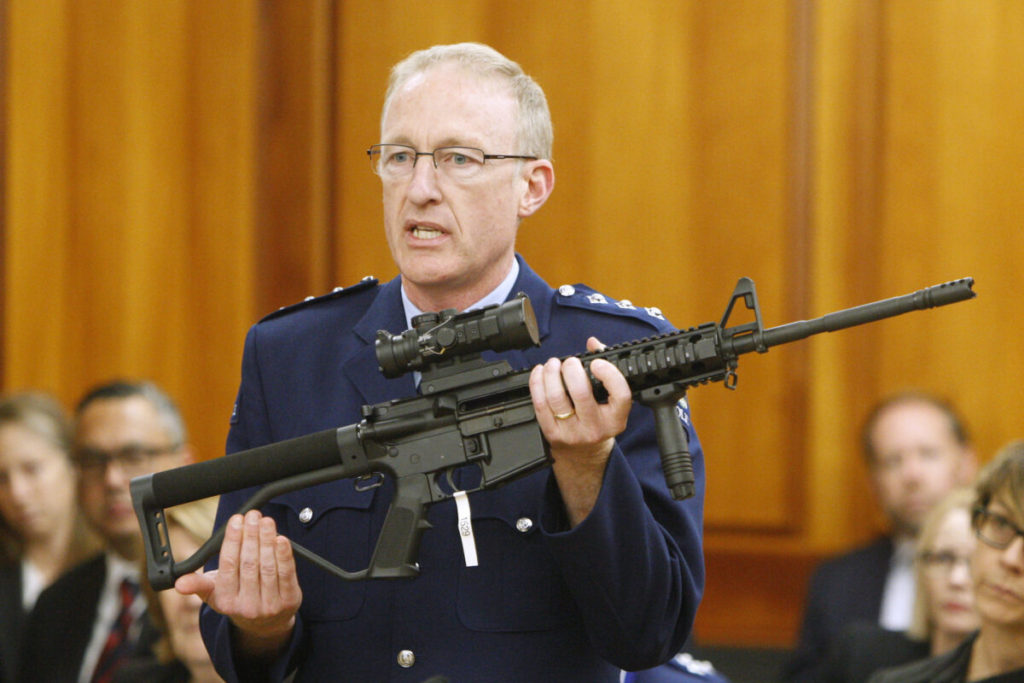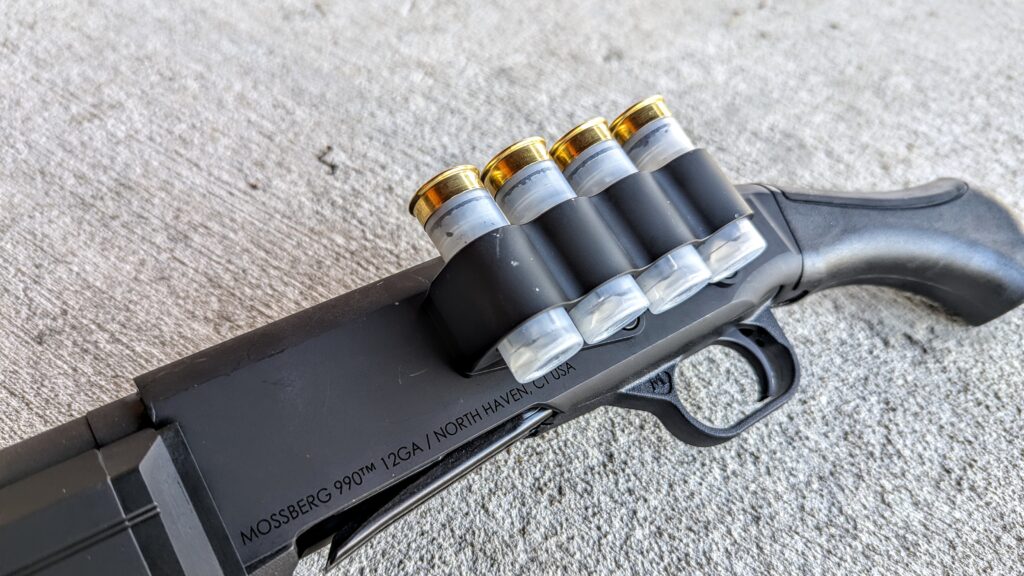[Ed: Our esteemed Northern colleague, distinguished researcher Gary Mauser, PhD, graciously offered for DRGO to publish his newest work. We believe the American government would also do well to learn from New Zealand’s experience.]
In their December report about the 2019 terrorist attack in Christchurch, the findings of the New Zealand Royal Commission critically undermined the justifications for the new Draconian firearms laws. Following the attack, Prime Minister Ardern promised, “Our gun laws will change,” going on to impose a wide range of new firearms restrictions. Ardern exploited public horror to expand government powers following the plans she and the police had started before the terrorist attack.
Never let a crisis go to waste
Advertisement — Continue Reading Below
Immediately after the terrorist attacks in Christchurch in March 2019, Ardern responded by launching a “buyback” of scary-looking guns (i.e., “military-style semi-automatic” firearms) through an order in council. She did so, without waiting for the report from the Royal Commission of Inquiry she had set up “to investigate whether Public sector agencies had done all they could to protect the people of New Zealand from terrorist attacks and whether more could be done.” Ardern’s decision to focus on firearms was blatantly self-serving and was done despite official recognition that there was no evidence that banning semi-automatic firearms would have any effect on violent crime or gun deaths.
Ardern followed up the buyback with a flurry of new gun restrictions. Two “tranches” of firearms restrictions were hustled through Parliament, first in 2019, and then another in early 2020. The first tranche, The Arms (Prohibited Firearms, Magazines and parts) Amendment Bill, banned a large number of semi-automatic and military-style weapons, such as those used during the Christchurch terrorist attack. The second tranche imposed a universal firearms registry among other radical changes. The new restrictions include reducing the 10-year firearms licence to five years; barring visitors to New Zealand from purchasing firearms; increasing the powers of police to take guns; requiring a firearm licence for purchasing ammunition and parts, and registering the country’s estimated 260 gun clubs. Applicants will now be required to include the name of a “health practitioner” as a reference who the police can consult before issuing a licence.
Police negligence
Advertisement — Continue Reading Below
Ardern claimed that new laws were needed because the killer got his guns legally. The facts say otherwise. The Royal Commission found that police negligence allowed the terrorist, a racist environmentalist, to get his firearms licence. The Commission documented how Police mismanagement was responsible, “the guidance given by the New Zealand Police to licensing staff was inadequate, as was their training.” Had the police followed proper guidelines, the terrorist would not have been allowed to buy firearms. in short, better administrative practices were needed, not sweeping new laws. The Police reacted by demanding increased powers to fight terrorism.
In the words of the Royal Commission, “known risks and deficiencies in the firearms licensing system were not addressed.” Instead of focusing on improving police management, Ardern exploited New Zealand’s shock at the terrorist attack to blame easy access to firearms, particularly military-style semi-automatic rifles, in order to vastly expand government powers. Her promises made immediately after the terrorist attack to change the gun laws were backed by the Police and opposition parties.
Apologies without responsibility
Advertisement — Continue Reading Below
Publication of the Royal Commission’s report in December forced both Prime Minister Ardern and the Police Commissioner to publicly apologize. Ardern apologised on behalf of the Government and directly to the Muslim community in New Zealand. Not to be outdone, the Police apologized for their failures in issuing a gun licence to the terrorist.
Unfortunately, Ardern did not apologize for her personal responsibility for changing, perhaps weakening, the gun laws prior to the terrorist getting his guns. Nor did she apologize for introducing unnecessary and ineffective gun laws. Instead, she expressed regret for not expanding government sufficiently to “keep everyone safe.”
Prior to the publication of the Royal Commission’s report, Ardern had promised accountability, but afterwards, despite apologies, no one was held to blame. In addition to recommending vastly expanding powers of government agencies, the Royal Commission reminded all New Zealanders of their responsibilities for making the country “safe and inclusive” – primarily by promoting the benefits of diversity.
Advertisement — Continue Reading Below
Everyone has apologized but no one is to blame. Ardern and her government officials made it clear that the Royal Commission exonerated them, “The Royal Commission found no failures within any government agencies that would have allowed the individual’s planning and preparation to have been detected but did identify many lessons to be learnt and significant areas needing change. To date, no ministers have resigned and no police personnel were fired.
Despite singling out police incompetence, the Royal Commission makes excuses for police oversights and sloppy investigations. However, the Commission did blame Parliament for not providing sufficient funding.
The Royal Commission paints a picture of various arms of the state – health, security and police – each having fragments of information but no way to piece together the whole, Security and Intelligence Service Director-General Rebecca Kitteridge announced. The December report did not satisfy everyone. Both the Muslim community and the firearms owners organizations such as COLFO were disappointed.
Advertisement — Continue Reading Below
The Royal Commission worked hard to find excuses for government failings, even going so far as to abandon the possibility of accurately identifying applicants who are “fit and proper,” in the NZ legal terminology. The Royal Commission speculated there was no way to predict the terrorists violent actions from the information available—then or now.
Despite finding many signs that suggested the applicant was violent, the Commission asserted that the Christchurch terrorist could only have been stopped “by chance”. Despite this admission of government powerlessness, the Royal Commission did not abandon the principle that the government is responsible for public safety. Indeed, the Commission recommended vastly expanding the powers of police and security agencies.
Concluding comments
Advertisement — Continue Reading Below
The Royal Commission’s finding that poor administration of existing legislation allowed a violent terrorist to arm himself critically undermines Ardern’s justification that the sweeping new firearms laws brought in following the attacks in Christchurch were required.
The government claimed the buyback was a success, but the Auditor General report was less positive, finding the total cost of the “buyback” was close to NZ$200 million, including more than NZ$35 million to administer as well at least $120 million for compensation for the surrendered firearms. Other New Zealanders questioned the buyback’s success. Despite setting up over 600 “local collection events,” the buyback failed to collect even a quarter of the newly prohibited firearms.
It is too early to determine if the new firearms laws have had any impact on violent crime or terrorism. The buyback ended in December 2019, and the new gun laws became effective in 2020. Only time will tell if massively centralizing the powers of the New Zealand government will provide safety and security.
Advertisement — Continue Reading Below
Despite the Royal Commission revealing the government’s failings for the terrorist attack, the Commission maintained its commitment to strong government. Ardern claimed that safety was the responsibility of the government, “Our duty is to keep everyone here safe. We have failed here and questions will be asked.” Citizens have no role in providing safety; even if the government admits it has failed to do. New Zealanders are being treated as mothers would deal with young children.
The Canadian government would be wise to learn from this fiasco. Instead of imposing a “buy back” of semi-automatic “assault-style” firearms, the government should focus on strengthening border enforcement and anti-smuggling efforts, improve efforts to reduce suicide, particularly in the North, reforming prisons, and cracking down on violent criminals.
.
Advertisement — Continue Reading Below
.
—Gary Mauser, PhD is professor emeritus in the Institute for Canadian Urban Research Studies and the Beedie School of Business, Simon Fraser University, British Columbia. He specializes in criminology and economics, has published extensively on firearms legislation, firearms and violence, and has provided expert testimony on criminal justice issues to the Canadian government.
















